In January 2023, Lindsay Ejoh posted a TikTok video of her work dissecting a frozen mouse brain. In it, the neuroscience PhD student uses a bladed machine to cut paper-thin tissue slices that she’ll later examine with a microscope. She also complains about the hour she spent trying to get the machine to work. The post racked up an impressive 5,000 views and dozens of comments. “What a cool life you lead,” wrote one user.
Ejoh, at the University of Pennsylvania in Philadelphia, is one of a growing number of PhD students building a following on social media by posting about their lives in research. Globally, an estimated 200 million people now consider themselves ‘content creators’. But some graduate students are progressing to be ‘influencers’ — with large followings and, in some cases, brand partnerships that can earn them hundreds of dollars per post.
These PhD influencers post on Instagram and TikTok about their day-to-day struggles with graduate studies. They offer research tips, share protocols and build networks. Many also share their experiences as members of under-represented groups in science. “This is so important for expanding the public image and broadening public perceptions of who is a scientist,” says Jocelyn Steinke, who studies media portrayal of science at the University of Connecticut in Storrs.
But broadcasting a PhD comes with downsides. It can be time-consuming and elicit harsh comments about how people look or conduct themselves in the laboratory. A looming ban on TikTok in the United States is forcing some users to rethink their approach. Four influencers discussed their experiences with Nature.
Showcasing science on TikTok
Ejoh started using TikTok during the second year of her PhD. She enjoyed watching videos of others documenting their daily lives, she says. But she could see only a few people posting about life as a PhD scientist — and hardly any were Black women like her.
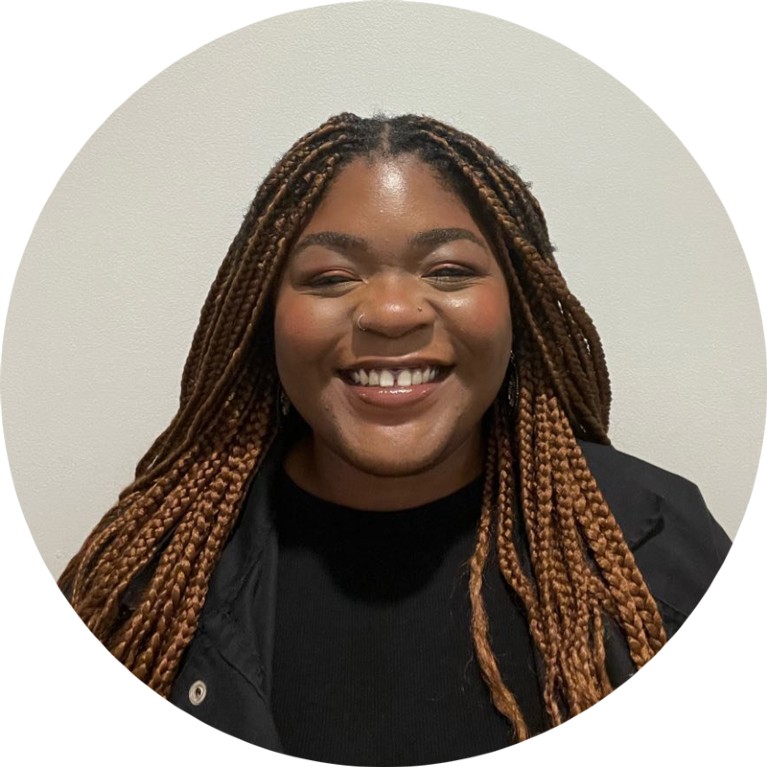
Lindsay Ejoh documents her life as a PhD student on TikTok and Instagram.
This prompted Ejoh to start her account @neuro_melody in 2021. “I thought it could be really cool to talk about what I do every day,” she says, and by doing so challenge stereotypes about who succeeds in science. Steinke says that, as well as striving to build a large community of followers, influencers typically distinguish themselves from other content creators by focusing “on one specific area of expertise”, such as fashion, sports or science. So far, Ejoh has gained more than 18,000 followers on TikTok and 53,000 on Instagram.
In one TikTok post, she suggests that PhD applicants can strengthen their applications by presenting undergraduate research data in conference posters. She also points to grants that people from under-represented groups in research can access. “Academia can be very gatekeeping,” says Ejoh. “The account is a nice way to share what I know about how to get in and how to thrive here.” Followers responded to the post positively. “You make me want to get a PhD so bad!!” read one comment.
Ejoh also posts about life outside work, such as a trip out of the city to pick apples with other graduate students. Some followers “are here because they’re interested in the brain and neuroscience and pain”, she says. “Others are interested in seeing a successful Black woman living her life and having fun.”
Ejoh has ambitions to build her following further and to become a principal investigator (PI). If TikTok is banned, she knows she’ll have to focus her efforts on Instagram. “I plan to post throughout my postdoc, I want to post about being a PI,” she says.
A lucrative biology Instagram feed
Since 2019, PhD student Yasmin Meeda has been approached by companies asking her to feature their brand on her booming Instagram feed. The marine microbiologist at the University of Exeter, UK, has gained more than 45,000 followers on her Instagram account @marinebiologywithyaz by posting about her PhD work on marine algae (Phaeodactylum tricornutum) and how it responds to changing environments. Now biotechnology firms, such as Thermo Fisher Scientific and Qiagen, and the media company BuzzFeed, pay her to feature their products in short videos, or reels.
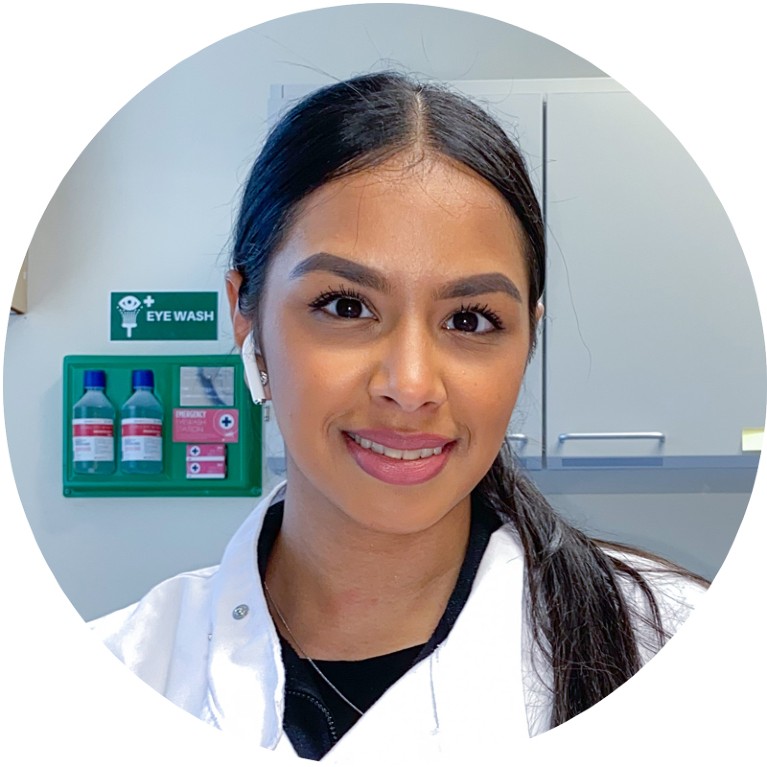
PhD student Yasmin Meeda features biotechnology brands on her Instagram feed.
Advertising through influencers has become a huge market — estimated to be worth more than US$35 billion this year. In one reel that Meeda created jointly with Qiagen, she showcases a new kit for isolating bacterial DNA and says it generates less plastic and cardboard waste than an earlier version. She makes between £200 and £1,500 (US$255–1,900) per post, she says, which supplements the grant Meeda receives: “I’ve actually been able to save.”
Meeda didn’t set out to turn a profit from social media — she wanted to challenge the idea that some people are not smart enough to do a PhD. In one post about her final school assessments, she wrote, “11 years ago, I failed my A-level exams.” But she retook some of them and earned a place studying biology at the University of Brighton, UK, before proceeding to graduate studies. By posting about her experience, she hopes to show others that a PhD is achievable regardless of school performance and to better represent women in science.
Setting up brand partnerships has had other advantages for Meeda. It has helped to develop her negotiation skills, which, she thinks, could help her to discuss salaries in her future career. And she’s gained a better idea of what that might be. Either presenting TV documentaries on natural history or becoming a lecturer at a university “would suit me well”, she says.
The power of perseverance
When Ellie Hurer was around three years into her PhD, she started using Instagram to find researchers who were dealing with chronic illnesses and to post about her own. Hurer’s conditions include depression, anxiety, benign tumours and attention deficit hyperactivity disorder. “On Instagram, I found so many people, PhD students and academics that were in a very similar situation to me,” she says.
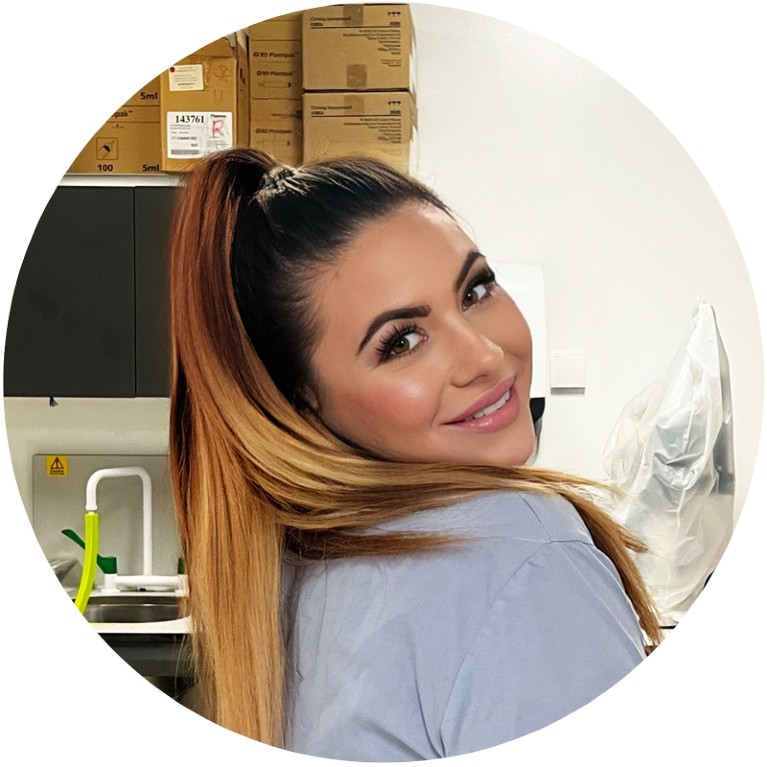
Cancer researcher Ellie Hurer uses Instagram to show how people with disabilities can pursue research.
Hurer, who studies pancreatic cancer at the University of Hertfordshire in Hatfield, UK, uses her Instagram account @myphdexperience to show how people with disabilities can pursue research. She has more than 88,000 followers. “I want to prove to myself & others that even with chronic illnesses & disabilities, we can achieve anything if we just keep trying,” she says in a post that garnered more than 3,000 likes. A graduate student with chronic illness wrote in response: “It can feel so isolating and seeing you persevere makes it feel possible.”
Hurer also posted about suspending her PhD — for about three years in total — to undergo tumour surgeries and manage her mental health. “If suspending wasn’t an option, I probably would’ve had to quit,” she wrote in a step-by-step guide to taking time off. Her funding was paused and she lost a sense of purpose during her early time away, she wrote. “I wish I had looked after myself more.”
For Hurer, creating online content became a source of income, too. She has made reels featuring a figure-making tool made by the company Mind the Graph, and for BBC Bitesize — an online study resource for UK school children. She says a reel can take around ten hours to produce in collaboration with a company. “You get paid proportional to how much engagement you get and the number of followers you have,” she says — for her, about £1,500 per reel.
Hurer has faced drawbacks to being a PhD influencer. When her account hit around 20,000 followers, “I got a bit obsessive,” she says. “I was trying to post all the time and get the numbers up, and it became a bit unhealthy.” Now Hurer is more careful about how often she posts. She’s also dealt with negative comments about her appearance, which she handles by reporting and blocking the related accounts. “Maybe once in a blue moon, I’ll get a comment about my lip fillers,” she says. “These people would never say that to your face.”
Logging the 24-hour #PhDlife
In 2022, cancer biologist Ria Chopra posted a reel of herself working through the night in the lab. Chopra is studying how a disrupted body clock might accelerate the growth of cancer — work that involves monitoring the protein levels in cancer cells from 10 p.m. to 7 a.m.. “I have to sleep in the lab and collect samples every four hours,” says Chopra, who studies at the Chinese University of Hong Kong.
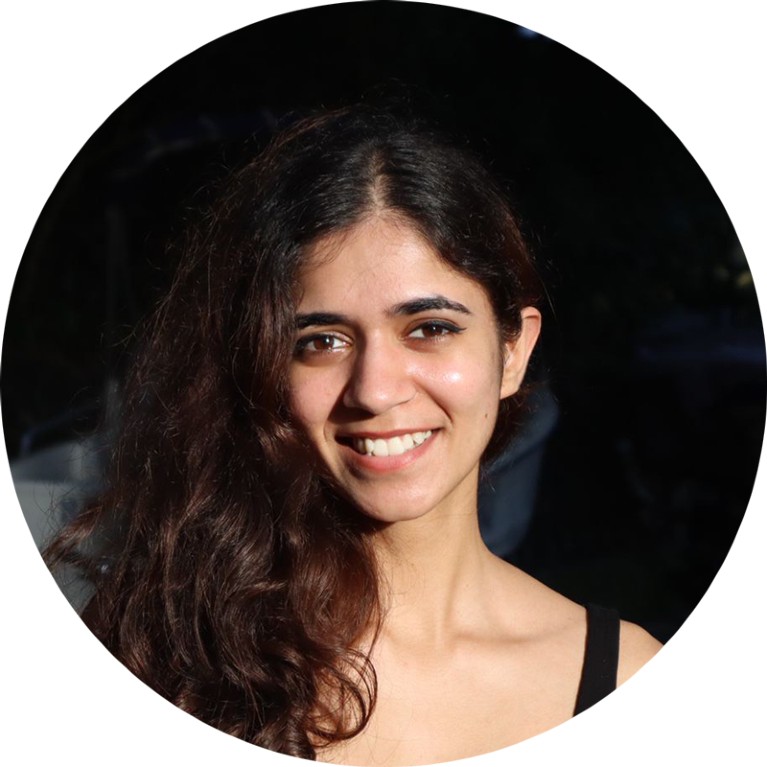
Ria Chopra, a cancer biologist, posts on Instagram about her PhD studies in Hong Kong.
Chopra has gained more than 15,000 followers on Instagram partly by posting such nitty-gritty scenes of lab life: one post shows her collecting prostate cancer cells from storage in liquid nitrogen, staining them with a bright green fluorescent marker and placing the samples in a −80 °C freezer. She sets most of her reels to dance music — a nod to her other passion and inspiration for her Instagram username @phdwhodances.
Chopra was one of the first PhD influencers to post about studying in Hong Kong — something that attracted followers, she says. Although Chopra, who was born in India, grew up in Hong Kong, she does not speak Cantonese or Mandarin fluently, she says. Prospective graduate students from India, Pakistan, the United States and Europe messaged her to find out how she navigated a PhD despite language barriers.
Chopra is currently posting only once every few months as she focuses on wrapping up her PhD. But in the future, she says, she might document her transition from academia to industry. “I think people would be interested to see the journey from a PhD to biotech or pharmaceutical companies,” she says.


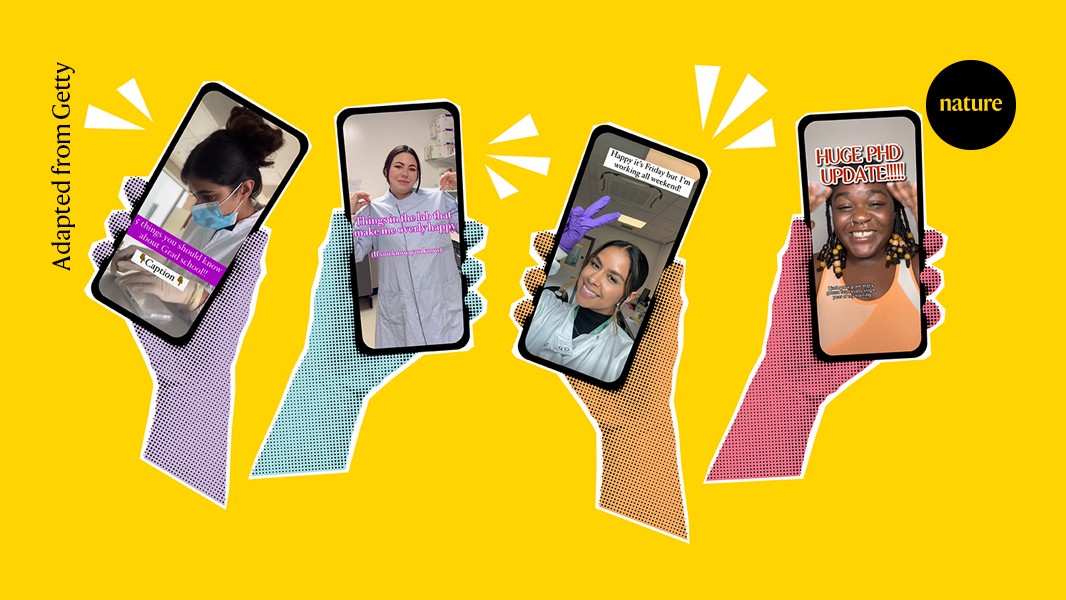
More News
The Amazon’s gargantuan gardeners: manatees
Publisher Correction: Single-crystalline metal-oxide dielectrics for top-gate 2D transistors – Nature
The baseless stat that could be harming Indigenous conservation efforts